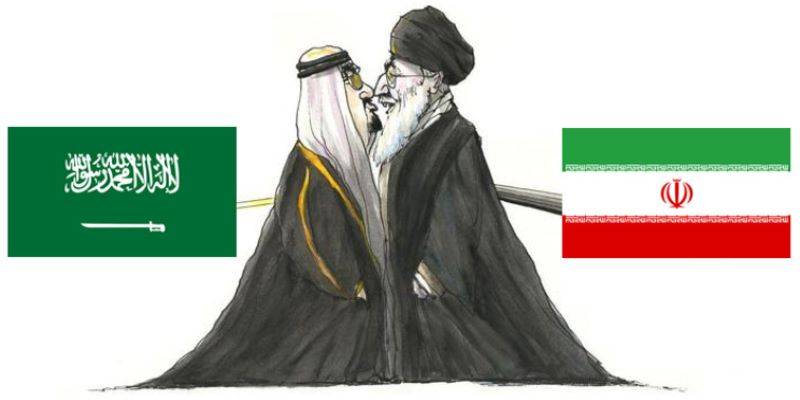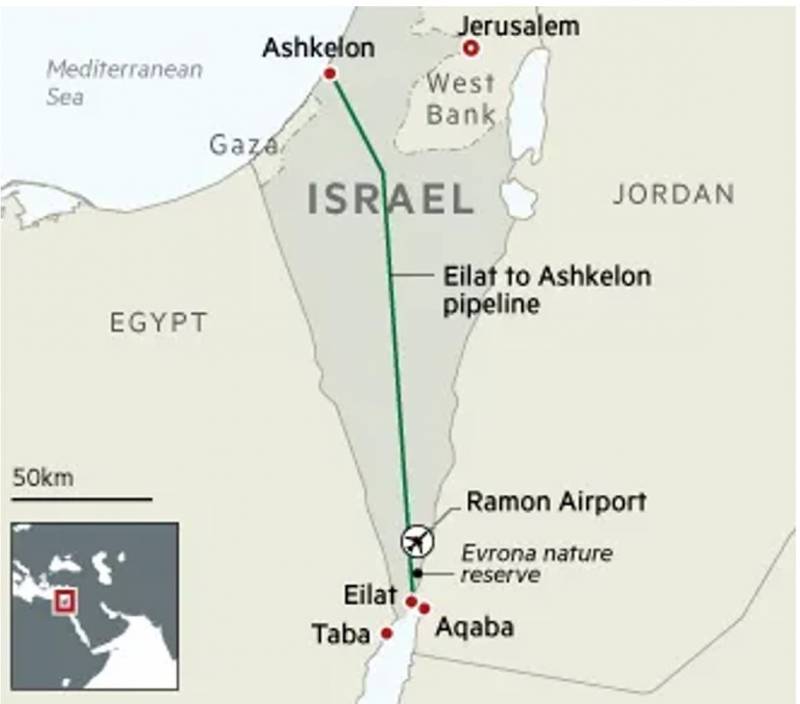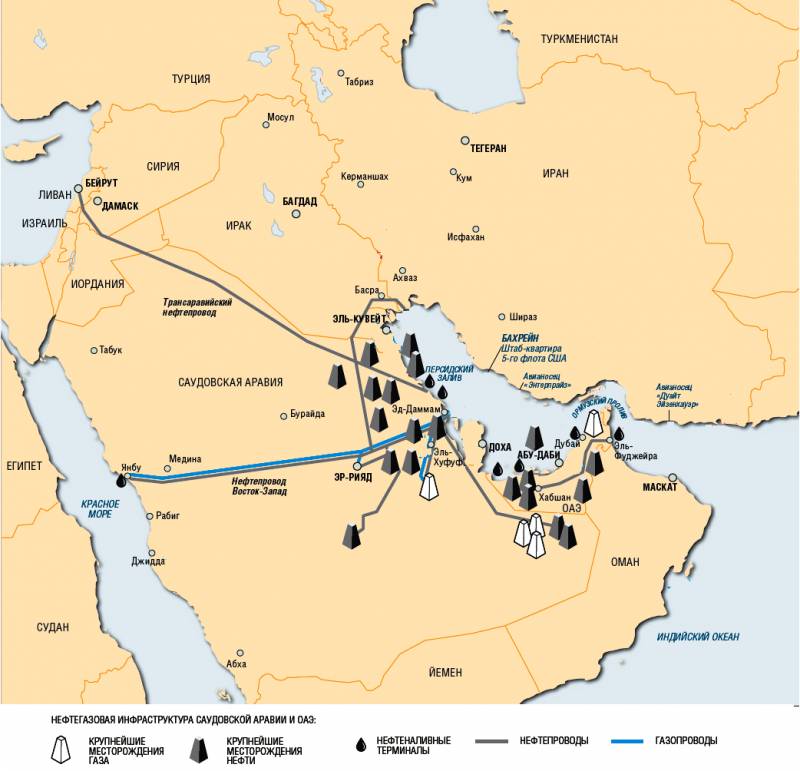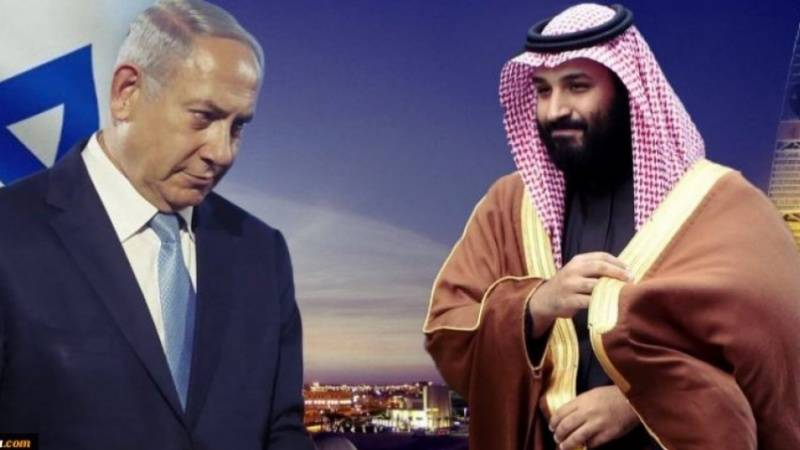Ayatollahs and sheikhs and even rabbis decided to get down to business

Let's leave old disputes for tomorrow
The restoration of diplomatic ties and economic relations between Iran and Saudi Arabia (SA), which took place recently, can be considered historical event. And it is by no means accidental that the Western media are diligently pushing him to the last lines of the political agenda.
Recall that the length of the era of fierce rivalry for the predominant influence of the main Islamic denominations in the Muslim world - Sunnis and Shiites - is measured in centuries. In fact, since the founding of Islam. At the same time, both of them traditionally accused each other of ties with Israel that contradicted Muslim postulates.
Year after year, this rivalry was personified by the main outposts of both faiths - Sunni Saudi Arabia and Shiite Iran. Even in the 1930s-mid-1970s, when Riyadh and Tehran were both military and political allies of the United States and the West in general, the struggle between them for the "leadership" of Islam did not subside.
Plus OPEC
Similarly, the eternal struggle for dominance in the Islamic world did not stop. Slightly reconciled only purely business interests. So, it was Riyadh and Tehran that were the main initiators of the creation of OPEC in 1960.
However, their political and ideological rivalry was and is also manifested in this structure, therefore both of them often had to use the mediation of a number of other member countries in it. To prevent the collapse of the organization.
As the Minister of Foreign Affairs of Iraq (in 1983–1992 and 1995–2001) Tariq Aziz noted, “if Iran and the Saudis with their Arabian allies in the 60s and later could not involve OPEC in their global contradictions, OPEC could well to control the entire world oil market.
And even dictate their terms to the West and other oil suppliers.” But Tehran and Riyadh preferred "sometimes not official, but still confrontation in OPEC, in which Iraq often also participated - at first in favor of the Saudis, and from the mid-1970s to 1979 - in favor of Tehran."
Because of these excesses, according to T. Aziz, all Arab oil countries in 1968 were "insured" by the creation of the Organization of Arab Petroleum Exporting Countries, which is still in force today.
Is Islam moving closer?
Now, however, that rivalry seems to be fading away. Since it is obvious that the Iranian-Saudi reconciliation is aimed precisely at the global, one might say, transnational consolidation of the Islamic world. And in this regard, it is possible that the Saudi authorities may even expel the US Air Force base in Es-Sulaimania from the country - especially since it is near Riyadh ...
In the meantime, a new signal of pan-Islamic consolidation has already been indicated at the suggestion of Riyadh and Tehran. This is the previously seemingly impossible normalization of relations between “pro-Iranian” Syria and Saudi Arabia, as well as with other “pro-Saudi” Arabian monarchies.
And this happens, we note, soon after the Iranian-Saudi reconciliation. The mentioned trends will certainly have a significant impact on the global oil market. For surges in world oil prices were by no means the least due to the long-term Iranian-Saudi confrontation.
It is also characteristic in this regard that almost simultaneously with the Iranian-Saudi normalization, Riyadh and Tel Aviv de facto agreed on the use of the trans-Israeli oil pipeline from the port of Eilat (Red Sea) to the port of Ashkelon (Mediterranean Sea) for the transit of Saudi oil.

Black gold will go through Ashkelon to Europe, North and South America. According to available estimates, this route will allow Saudi Arabia to increase oil exports by at least 20%.
The route is known
This export route to the West for Arabian and Iranian oil is the shortest and, accordingly, the least expensive. Therefore, Tehran's monarchical regime actively used this artery for almost the entire 1970s: up to a third of Iranian oil exports at that time accounted for pumping along the Eilat-Ashkelon route.
Since 2021, the same pipeline, we recall, has been used for oil transit from the UAE; some foreign media reported that since the beginning of the 2020s. oil is periodically pumped for export from Bahrain and Oman. There were no official denials.
The first and geopolitically most important export trans-Arabian oil pipeline for Riyadh was created by Western companies (mainly American) at the turn of the 1940s–1950s. - to the southern Lebanese port of Saida. Due to military-political circumstances, this artery has not been operating since the mid-70s.
Although it was reported in the Israeli media in the 80s and much later that Saudi oil is still sometimes pumped here. Just business, nothing personal. And yet, in connection with the mentioned agreements on Saudi oil transit through Eilat-Ashkelon, it is difficult to assume that the artery to Saida will no longer be used by Ryad.
In this regard, it is impossible not to recall - from her since the beginning of the 50s. there is a branch - from the Jordanian region bordering Israel - to the northern Israeli port of Haifa (near the border with Lebanon). This city has a large oil refinery that refines Arabian oil. In addition, the Saida refinery is still controlled by the Saudi ARAMCO.
Not holy ground
Here it remains to mention only the oil pipeline "bypasses" of Palestine, created by the Saudis in the 1980s. and by the beginning of the 2010s to the ports of Saudi Arabia on the Red Sea (Jeddah, Yanbo) - taking into account further sea delivery to the West - longer than the "pipes" to Ashkelon, Haifa, Said.
There is no doubt that this is also why the Saudi side will certainly use all these arteries in the future. The normalization of Iranian-Saudi relations may not exclude the resumption - that is, the promising transit of Iranian oil through the SA along the route Eilat - Ashkelon. Moreover, that normalization took place, we repeat, almost simultaneously with the agreements between Riyadh and Tel Aviv on oil transit along the same route.

It should be noted that since the Islamic Revolution of 1979, the only "oil export" route for Iran has been a kind of bottleneck of the Strait of Hormuz between the Persian Gulf and the Indian Ocean. Needless to say, it is most vulnerable in the context of Iran's permanent confrontation with the West, especially with the United States.

In connection with these factors, it can be assumed that Riyadh - probably at the suggestion of Tehran - will in some form contribute to easing tensions between Iran and Israel. Especially given the indefinite economic benefits for all - we note, from the transit of oil through Saudi Arabia and Israel from any country in the region.
This scenario is also supported by the fact that Iran and Turkey have not yet agreed on the construction of an oil pipeline from Iran to any Turkish Mediterranean port. At the same time, negotiations "on the topic" have been periodically conducted for many years.
The Turkish side proposes to connect a pipe from Iran in the south-east of Turkey to the Baku-Tbilisi-Ceyhan port oil pipeline, controlled by the BP company, British Petroleum, well known to Russians. But the Iranian side is in favor of "independent" Iranian oil transportation through Turkey.
How is it possible today, in the context of the global confrontation "all against all", to evaluate the oil transit agreements between Riyadh and Tel Aviv and the normalization of Iranian-Saudi relations?
Most likely, positively, especially since they were implemented almost simultaneously and go far beyond the framework of the "triangle" Israel-Saudi Arabia-Iran.
- Alexey Chichkin, Alexey Podymov, Victor Malyshev
- e-news.pro, slideserve.com, politika.snauka.ru, communitarian.ru
Information